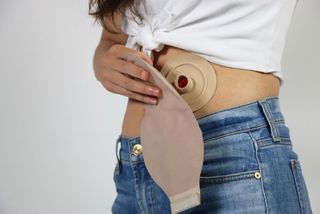- The recent recognition of several projects by Elisava Industrial Design Engineering bachelor’s degree students confirms the excellence of the students and the strong position of this discipline in our university.
- According to the Spanish Engineering Observatory, “the employment rate in the engineering sector is over 98%” and “in ten years, more than 200,000 engineers will be needed to cover business needs”

Elisava’s name has always been present in the most notable national and international awards in the field of design. However, in recent years, due to an active strategy by the Elisava Faculty of Design and Engineering, this presence has become even more noticeable.
One of the most obvious cases is that of this centre’s bachelor’s degree in Industrial Design Engineering and some of its students’ latest projects, which were recently recognised with several awards. This situation has coincided with a favourable context for Engineering. According to the Spanish Engineering Observatory, "ten years from now, over 200,000 more engineers will be needed to meet the needs of companies in the industrial and service sectors." The study also concluded that "the employment rate in the engineering sector is more than 98%."
The numerous projects of Elisava Engineering students that have received awards in recent months confirm the promising future perspective of this discipline
The numerous projects of Elisava Engineering students that have received awards reinforce this promising future perspective. One of them is ATOM, by students Anna Martin and Marcel Rovira, which proposes the generation of fuel through hydrogen storage. The project won the second edition of the imaginPlanet Challenge, an initiative that supports young people with entrepreneurial ideas to fight climate change. Both students travelled last summer to Silicon Valley, in the United States, to get advice on obtaining a functional prototype of their product.
An open source fully 3D-printed robotic arm
Another prize-winning project is MOTUS, the final degree project of students Àlex Latorre and Mar Pelach, tutored by Jonathan Chacón. The part of this project designed by Àlex Latorre has won the Autodesk Fusion 360 Digital Manufacturing Student Design Challenge, to which a total of 46 projects were submitted.

MOTUS is a fully 3D printed open source robotic arm, conceptualised and designed for use in academic settings. It is an affordable, flexible solution that fosters a creative environment in which users can learn by doing.
LOOP, by Marc Godayol, won first prize in the latest Spanish edition of Roca’s One Day Design Challenge, aimed at students and young professionals. This year, around 150 product designs were presented, which were generated in just one day. The challenge that had to be met was to maximise the space inside bathroom furniture. LOOP proposed a bathroom with all the elements arranged on a single wall, incorporating the storage option and taking advantage of technology to achieve a simple, functional, easy-to-clean design.

Other recent awards were the CIAC Talent Awards, part of the Automotive Talent Show organized by the Automotive Industry Cluster of Catalonia. This year, awards were given to Elisava Industrial Design Engineering bachelor’s degree student Alexandre Martín ("Background check" category) and Bernat Llanas ("Eco-Friendly" category). Both are part of the current promotion of the Elisava Racing Team project, the latest editions of which achieved new milestones, such as Onux, an innovative battery exchange and self-maintenance system in the field of moped sharing.
Recent projects include a product that generates fuel from hydrogen storage, a customised disc for ostomy bags created with 3D printing and a battery exchange system for the moped sharing sector
Another project that stands out arose from the university master's degree in Industrial Design Engineering. It is called Odapt and was created by students Ivana Llobet, Patricia López and Jéssica Nissen, tutored by Jéssica Fernández and Xavier Tutó. Odapt has been recognized twice in the international Forward AM Innovation Award, as a finalist and as a winner of the Audience Award, a double distinction that resulted in a prize of €25,000 for the young designers.

Odapt is a 3D-printed reusable, customised ostomy bag disc that adapts to all kinds of stomachs and each patient’s pathology, and solves the current main problem of this type of product: leakage caused by poor adhesion.
A game to make mathematics more attractive and a tool to visualise the world of quantum physics
In addition to the award winners, projects such as Byodo, by Industrial Design Engineering bachelor’s degree students Eva Vela and Gabriel Alcaide, are also noteworthy. Byodo is a game system based on numbered hexagonal mosaics that aims to put an end to the negative connotations of mathematics through an educational, fun tool. The project has recently been highlighted by Mr. Beast, ranked third TikTok content creator in the world, and appeared on Andreu Buenafuente’s programme Nadie Sabe Nada. A few weeks ago, its authors launched a crowdfunding campaign to be able to produce Byodo.

Another project to highlight is We Are Bits, which aims to visualise the world of quantum physics through art and technology. It was created under the guidance of Daniel Cavalcanti, quantum physicist and founder of Bitflow Studio; professional dancer Helena Macruz; the Thalamus VR virtual reality studio, which includes Pau Benazet, Elisava alumni and professor; and Jonathan Chacón, professor of Elisava’s Industrial Design Engineering bachelor’s degree, who provided essential advice and the use of motion capture.
All of these are good examples of the growing reach of Elisava’s Industrial Design Engineering studies, whose main objective is to bring value to today’s industry and society through the design and development of products, systems and services that integrate the latest technological advances.